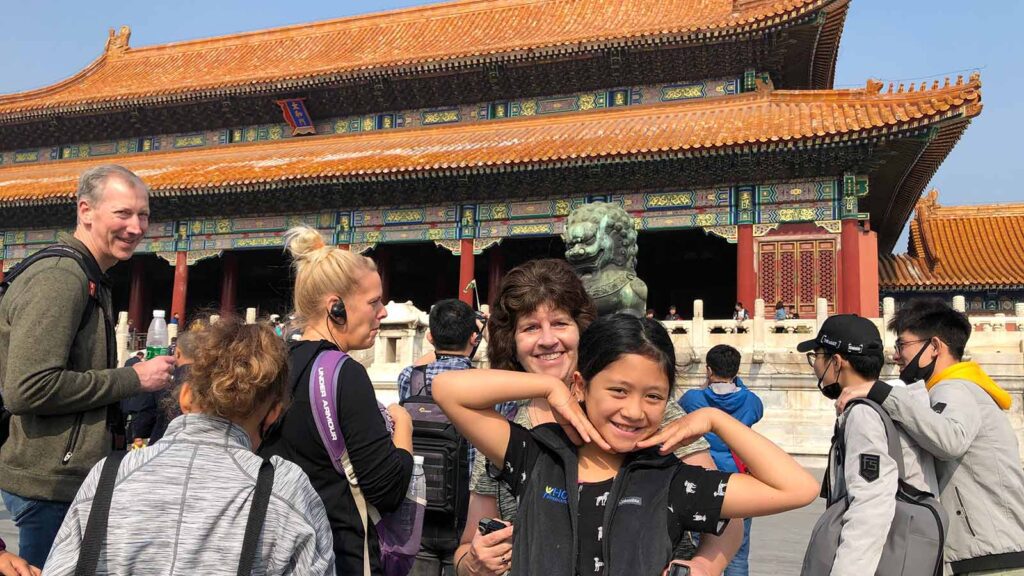20 New Facts To Uncover China Food Traditions
20 New Facts To Uncover China Food Traditions
Blog Article
Top 10 Tips On Street Food Safety In China
1. Select vendors with a long line tip. Find vendors that have lengthy queues and a high turnover. This is because they're more likely to use fresh ingredients.
Pro A high turnover rate is a sign of freshness and the popularity of locals.
Con: The wait time for the line may be lengthy.
2. Observe Hygiene Practices
Tip: Avoid touching food items with your hands if you're shopping at a shop that does not wear gloves or clean their tables.
Pro: Lowers the risk for food-borne illnesses.
Cons: The high standards for hygiene may limit your choice.
3. Avoid Uncooked Foods
For a bacteria-free diet, choose foods that have been cooked, like grilled Skewers.
Pros: Food cooked in a kitchen will not cause food poisoning.
Con: It reduces your choices as some raw items such as sushi, cold salads or sashimi are appealing.
4. Inspect Ingredients
TIP: Pay attention to the appearance and odor of the food item. Fresh food should be vivid in color, and not have an unpleasant odor.
It is best to avoid low-quality or unrefined ingredients.
Con: May be challenging to discern freshness without experience.
5. Boiled or Bottled Beverages, Drink Bottles
To avoid drinking unsafe tapwater, choose bottled water, tea made of boiling water or canned drinks.
Pro: Guards against water-borne ailments.
Con: Your options are limited, particularly when you are a patron of street stalls.
6. Start Small
Tip: Try a tiny portion of unfamiliar foods first to see how your body reacts.
Reduces the risk of having serious digestive issues.
Con: The food might not be enough to satisfy your needs, even if it is tasty and safe.
7. Avoid Ice in Drinks
Tip: Skip Ice cubes as they may be made from untreated tap water.
Pro: Protects you from potentially contaminated water.
Con: Drinks will be less refreshing when it's hot.
8. Find freshly cooked Items
TIP: Choose food that you can see being prepared right in front of you.
Pro: Lowers the risk of contamination due to exposure for a long time.
Con: Some street food items can be difficult to resist or resist.
9. Hand Sanitizer for Carry-on
Tip: Use hand sanitizers or wet wipes before eating, especially when handwashing facilities aren't available.
Pro: It lowers the risk of spreading germs to food.
Cons: You might have to carry more items, that aren't convenient.
10. Trust your Instincts
Tips: Avoid eating any food that has a smell or looks off.
Pro: It can help you avoid foods that could cause you to get sick.
Con: Can lead to over-caution, which can result in you missing the real-world experiences.
Street Food in China: Pros and Cons
Street food is usually cheap and full of flavor.
Convenient : There are vendors all over the place. It's easy to get a quick meal or snack.
Enjoy the culture of local cuisine at street stalls.
Choose from a variety of food options: The options are endless, from Jianbing sweet crepes to Chuan'r - grilling skewers.
Cons of eating street food in China
Hygiene concerns: Foodborne illness is a possibility especially at stalls that are less well-known.
Allergy Risques: The ingredients of some products may not be disclosed. This can be a challenge for those suffering from allergies.
It can be difficult to communicate about ingredients or the methods used to prepare them.
Overeating The temptation to overeat. The variety of options can lead to you overeating and a stomach upset.
Enjoy China's street food culture in a safe manner by following these safety tips. Read the best plan your trip to this location for blog tips including eating in taiyuan, eating in zhengzhou, hua diao the most famous shaoxing yellow wine, south luogu laneone of the oldest neighborhoods in beijing, binhai aircraft copyright theme park in tianjin, shenzhen golf club, kashgar tour maps, splendid china tour.html, a wonderful landscape painting lijiang river, chinese vegetarian food a vegetarians guide in china and more.
Top 10 Tips For Rituals To Follow When Visiting Famous Chinese Temples
1. Respect the rules and practices of your temple. You should be aware of these rules, especially when participating or entering sacred areas.
Pro: This shows the respect to local customs and the temple sacred space.
Pro: The rules are complex and can be confusing, especially in temples.
2. Be Quiet & Respectful
Tip: Be respectful by keeping quiet during ceremonies and at the temple. Do not talk or laugh loudly.
Pros: It creates reverence and peace for worshippers.
Cons: The lack of conversation could be awkward for those who are not used to the culture or environment.
3. Dress modestly
Tip: Wear respectful attire such as long pants dresses, or skirts and be careful not to expose your clothing. Some temples offer wraps or scarfs to wrap arms.
Pro: Shows respect to the sacred place and the worshippers.
Cons: You might have be prepared or wear extra clothing on hot days.
4. Offers Ritual
Tip: Wait until others have finished their rituals and then follow the lead of locals if like to join in an offer (such as offering incense or fruit).
Pro: Allows you to blend in and shows you are respectful of traditional ways of doing things.
Cons: You may not be comfortable when you aren't sure about the ceremony.
5. Don't interrupt your meditation or prayer
Do not interrupt worshipers when they're praying or meditating. Don't take photos or have conversations while other worshippers are engaged in spiritual activities.
Pro: Shows respect for culture and ensures that a calm and reverent environment is maintained.
Cons: While you might be tempted by the idea of capturing moments, doing so could feel unsettling.
6. Lighting of Incense
Tips: Lighting incense an everyday ritual in Chinese temples. Incense is an excellent method to show your gratitude for the gods. In both hands, bow slightly when you are offering it.
Pro: This indicates that you are a temple member who respects the tradition and actively participate in its traditions.
Con: Could be unfamiliar to some travelers, and improper handling of incense might be disrespectful.
7. Do not touch sacred statues or other objects
Tip: Avoid touching holy statues, relics or other temple items unless specifically permitted to touch them.
Pro: Maintains reverence and respect for the sacred space.
Con: It is confusing to know where the temple boundaries are.
8. Be aware of the Hierarchy in Temples
Tips - In certain temples, there are different levels for sanctity. Be aware of your steps--do not walk before altars or holy statues, and know where to bow.
Pro: Respect the temple and be respectful.
Cons The hierarchy isn't always clear and requires extra effort to establish what's acceptable.
9. Keep Offerings Humble
TIP: If you opt to bring gifts (flowers fruit, flowers or even money) make sure they are modest and in line with the local customs. Gifts that are expensive or extravagant could be viewed inappropriately.
Pro is humble and obedient. He also conforms to the local culture.
Cons: You might not be sure what type is most appropriate for you without local guidance.
10. Take part In Temple Events If Invited
Tips: Many temples host special events like ceremonies, prayers or even celebrations. If you're asked to participate take part in the event with respect, and follow the instructions of the crowd.
Pros: It lets you be more in touch with the local culture as well as get you involved more deeply in the temple experience.
Con: Participating in unfamiliar rituals can feel uncomfortable and awkward If the rules are not strictly adhered to.
There are numerous benefits of following ritual practices in temples
Participating in rituals can aid in understanding the Chinese culture and traditions.
Respectful Interaction : By being mindful and engaging with respect to build positive relationships with locals and temple personnel.
Participating in spiritual and cultural practices can enhance the life of an individual.
Being part of the temple ceremonies will leave you with lasting memories.
Pros and Cons of Following the Ritual Practices of Temples
A lack of familiarity. First-time visitors may be confused by the rituals, which could result in confusion or errors.
Cultural Mistakes If performed incorrectly it could cause offence or misunderstandings.
Language Barriers: Due to language differences, it may be difficult to comprehend instructions and the significance of rituals.
Physical discomfort can occur when doing specific rituals. For example, standing or bowing for long periods can cause physical discomfort.
By following these tips and keeping in mind the local customs, you will be able to make sure you have a pleasant and meaningful visit to China's renowned temples, engaging in their religious practices without causing any offense. Take a look at the recommended discover the charm of this site for more advice including hua diao the most famous shaoxing yellow wine, shanghai portman acrobatic show one of the best acrobatic shows in shanghai, litchi park, hohhot transportation, kweichow moutai the best and most famous liquor in china, eating in taiyuan, a wonderful landscape painting lijiang river, naked marriage in china the most fashionable wedding style for the 1980s, south luogu laneone of the oldest neighborhoods in beijing, the origin and history of the mysterious chinese dragon and more.